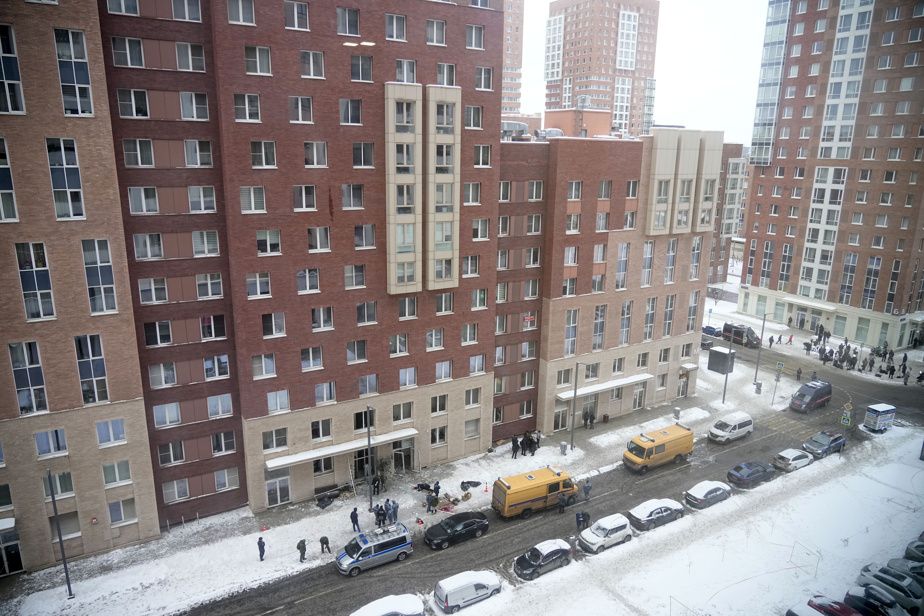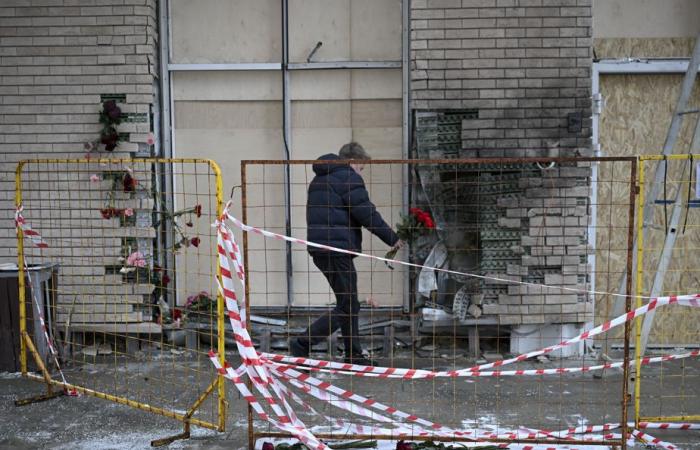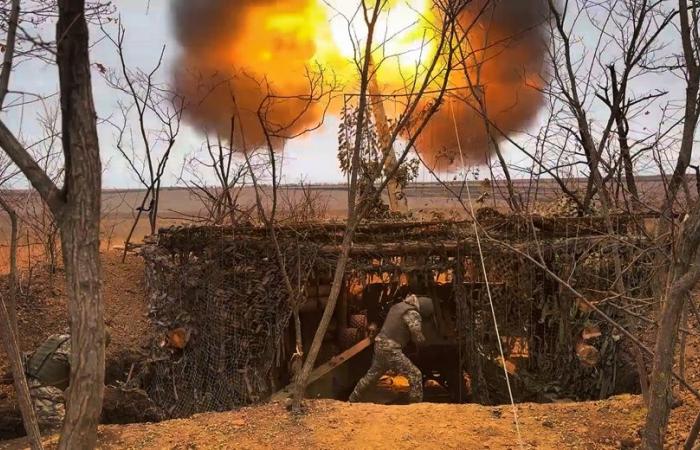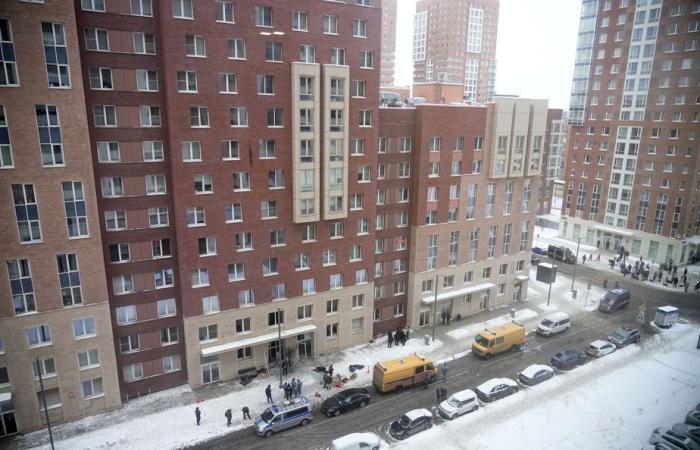Succeeding in killing a Russian general in the heart of Moscow is a triumph for the Ukrainian intelligence services. This highlights the skill, daring and ingenuity required to operate behind enemy lines in war.
Posted at 12:00 a.m.
Michael Schwirtz
The New York Times
But it is a limited triumph.
The death of General Igor Kirillov, 54, will arouse the anger of the Kremlin and a certain fear among the country’s military and political elites. The operation eliminates a high-ranking soldier who, according to Ukrainian authorities, ordered the use of banned chemical weapons against Ukrainian troops.
On the other hand, it does not in any way improve Ukraine’s military position against the Russian invader, believe various Western officials and experts. The Ukrainian army continues to lose ground against a more numerous and better equipped adversary. On Tuesday, fighting raged across more than 1,000 km of the front line, with major Russian offensives in several regions, said General Oleksandr Syrsky, commander-in-chief of Ukrainian forces.
“I think there’s a psychological impact, a message to the elites that says, ‘Wherever you are, we can find you and you’re not safe,'” said Douglas London, a three-time chief station of the CIA until his retirement in 2019. “But I don’t think it will really have an effect on their combat capability. »
On the ground, the situation has never seemed so desperate for Ukraine since the invasion in February 2022. The Russian army is at the gates of Pokrovsk, an important railway junction, and threatens the large cities of Kramatorsk and Sloviansk, all located in Donetsk. The situation is so serious that authorities have ordered the evacuation of the 300,000 civilians still living in the region.
RUSSIAN MINISTRY OF DEFENSE PHOTO, PROVIDED BY THE ASSOCIATED PRESS
This photo released on November 19, 2024 by the Russian Defense Ministry shows a Russian Guiatsint-B 152mm howitzer firing at a Ukrainian position, in an undisclosed location in Ukraine.
Meanwhile, the Russians, reinforced by North Korean troops, counterattack in the Russian region of Kursk, where the Ukrainians surprised them last summer.
Shadow War
Given Ukraine’s setbacks on the front, assassinations, sabotage and other covert operations may give Ukrainians few options, Western officials and experts say. They have been honing these skills for years.
Before Russian President Vladimir Putin launched war in February 2022, Ukraine and Russia were already waging a shadow war with assassinations. Political leaders, military leaders and intelligence officials have died in car bombings and more creative means. In one famous case, Ukrainian agents put a remote trigger on a rocket launcher aimed at the office of a Russian-backed rebel commander and killed him when he entered.
The bomb that killed Kirillov showed just as much ingenuity. Attached to a scooter left in front of a residential building, it exploded, apparently operated by remote control, when the general left the building early Tuesday morning, killing him and his assistant. A camera placed in a car parked across the street appears to have provided a video link allowing Ukrainian agents to see when the general would emerge.
The Ukrainians succeeded in other similar operations in Russia during the war, but never had such a high-ranking officer been killed so far from the front. The operation was claimed by Ukraine’s security service, the SBU, the same agency that orchestrated the remote-controlled rocket launcher attack and other sabotage and targeted assassination operations.
Trained by the CIA
For Valentyn Nalyvaitchenko, Tuesday’s operation is the culmination of the work undertaken when he took command of the SBU in 2014. Under his leadership, the agency purged elements suspected of pro-Russia sympathies and recruited young agents born after Ukraine declared independence from Russia in 1991.
Mr. Nalyvaitchenko and his longtime right-hand man, General Valeriy Kondratiuk, set up a paramilitary unit, Directorate No 5, who was trained in clandestine operations in enemy territory by the CIA. American authorities claim that this training was not intended for assassinations, but Directorate No 5 played a leading role in this type of operations.

PHOTO BRENDAN HOFFMAN, THE NEW YORK TIMES
Valentyn Nalyvaitchenko, former deputy minister and commander of the Ukrainian security services. Now a member of Parliament, he is delighted that efforts to increase the service’s clandestine capabilities are bearing fruit.
We invested a lot of time and resources. I am happy that it is working and that these efforts are bearing fruit.
Valentyn Nalyvaitchenko, former commander of the Ukrainian security services
Russian authorities have vowed to avenge Kirillov’s death. Dmitry Medvedev, former president and current vice-president of the Russian Security Council, has promised “inevitable reprisals” against “Ukraine’s military and political leaders.”
Nalyvaichenko, now a member of Ukraine’s parliament, has urged vigilance among military and civilian leaders, but he and other officials say Russian security services appear less capable than before of carrying out operations on Ukrainian soil.
The SBU and its sister service, the Military Intelligence Agency (HUR), have been linked to a number of assassinations in Russia and the Ukrainian territories it occupies. American authorities attribute to these agencies the assassination, in 2022, of columnist and ultranationalist activist Daria Douguina, the daughter of Alexandre Dugin, an influential ideologue renowned for being close to the Kremlin. Last month, the SBU claimed responsibility for the assassination of Valery Trankovsky, a high-ranking Russian navy officer accused by Ukraine of ordering missile strikes on civilian targets. Both were killed in car bombings.
A dozen plots against Zelensky
In each case, Russia has sworn vengeance, but so far has failed to match Ukraine’s stunts. Ukraine claims to have foiled – at least once with the help of the CIA – plots against the life of President Volodymyr Zelensky at the start of the war. In an interview on Italian television in early 2024, Mr. Zelensky said he had been informed by his security services of ten plots of this type.
Western experts and officials credit Ukrainian counterespionage for foiling these plots, but they add that Russia has less need than Ukraine to rely on clandestine operations. Russia, for its part, can fire long-range missiles that can hit anywhere, and it probably uses its agents for espionage and target identification, rather than assassinations, said Ralph Goff, a former senior official at the CIA, which often visits Ukraine.

PHOTO ASSOCIATED PRESS
Investigators examining the location where General Igor Kirillov, head of Russia’s nuclear, biological and chemical defense forces, and his aide, Ilya Polikarpov, were killed by a Ukrainian explosive device in Moscow.
For the Ukrainians, killing enemy leaders is “a strategy of necessity, it’s all they have.”
But ultimately, it’s unclear whether these operations are useful. Americans who support Ukraine have long warned that these assassinations are gratifying in the moment, but ultimately counterproductive because they consume limited resources and constitute a provocation.
According to U.S. officials, the Biden administration has attempted to use Ukraine’s dependence on U.S. aid as leverage to get it to cease these operations, apparently without much success. If the Trump administration cuts U.S. aid, the Ukrainians may decide they have nothing to lose and that these actions are one of the few ways to continue the war and strike Russia, London said.
“With the Trump administration, the Ukrainians are looking at how they can better exploit asymmetric operations, either assassination operations as they have already done, or long-range strikes with the drones and missiles they are developing themselves,” Mr. London said.
This article was published in the New York Times.
Read this article in its original version (in English; subscription required).









